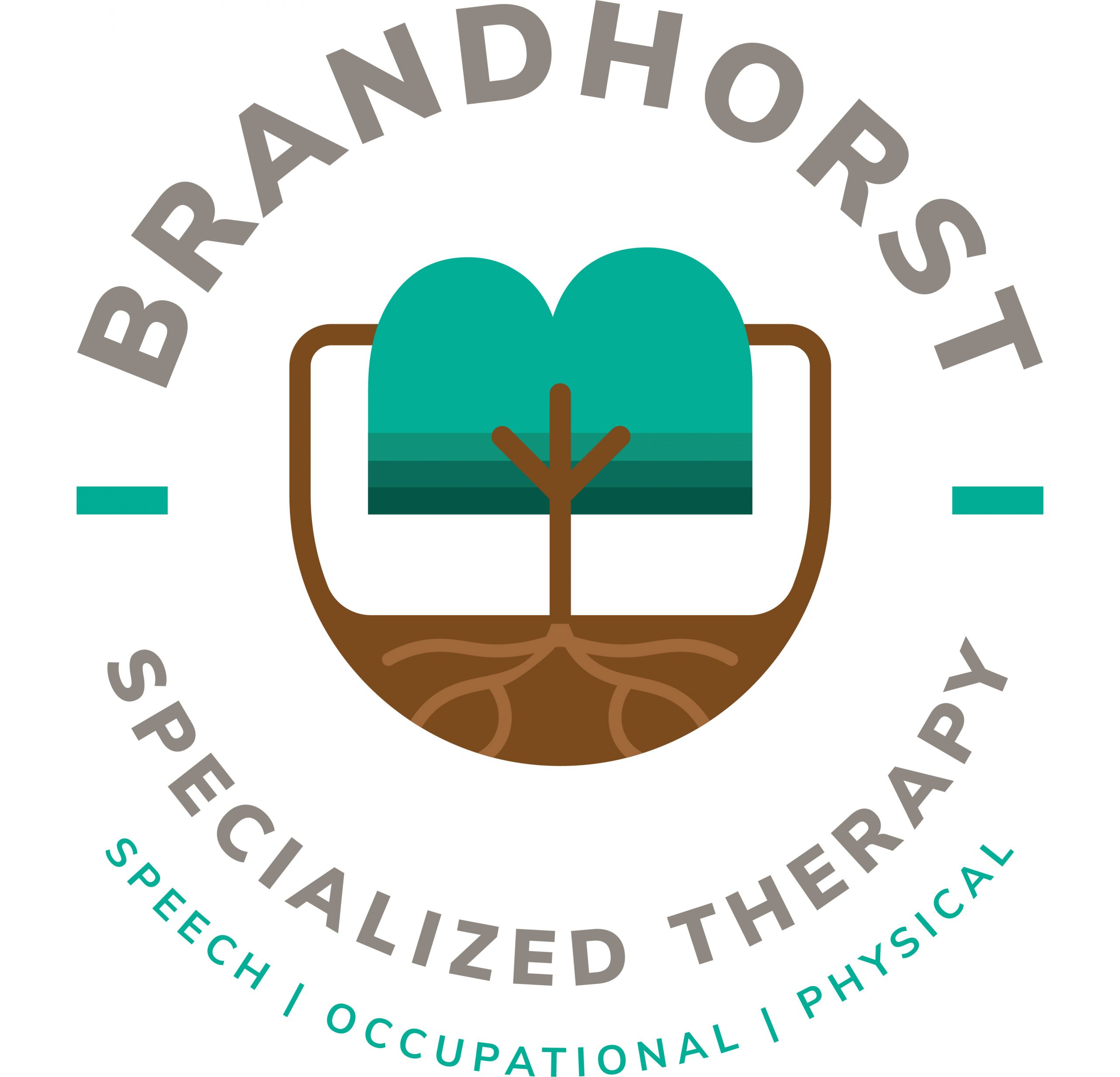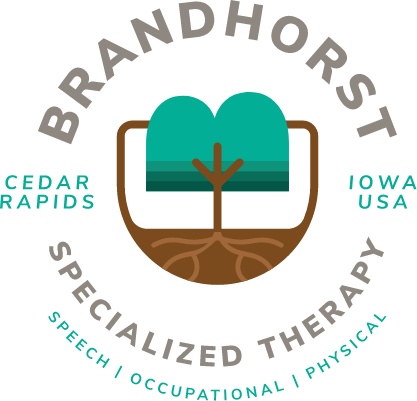Expert Therapy
who we are
At Brandhorst Specialized Therapy, we recognize that bodies are complex, integrated systems. When a presenting problem does not respond to traditional therapy, we dig deeper! The vision held by a single therapist working out of her car has expanded to include like-minded clinicians with diverse speech and pediatric occupational therapy specializations.
We diagnose and treat movement, motor, speech, sensory, and feeding disorders. These disorders may be related to premature birth, picky eating, Autism Spectrum Disorder, tethered oral tissue, Down Syndrome, Cerebral Palsy, degenerative disease, CVA, TBI, apraxia of speech, developmental delay, and more. We work with other medical professionals to uncover the airway, musculoskeletal, and neurological factors that contribute to the observable concern. Then we develop individualized, family-centered treatment strategies, drawing from both traditional therapy practices and innovative techniques.
Our approach enables patients to find the answers and support needed to stabilize, grow, and thrive.
Feeding Therapy Options: Is Your Child a Picky Eater?
Parents of picky eaters often struggle to understand what is happening to their children. Many forget that they may have been picky eaters when they were young or have no idea why a child would struggle to eat certain types of foods. They often believe that the child is just misbehaving and forcing them to eat foods that they don’t like to eat. This type of corrective behavior is understandable but can be damaging to a child’s emotional health. As a result, it is essential to understand how feeding therapy in Cedar Rapids, Iowa, can help a child expand their dietary experience.
Why Picky Eating is Such a Problem
Picky eating is defined in many different ways by many other people. For example, some fussy eaters may like just meat and a handful of vegetables or fruits. Or a picky eater may reject meat entirely and turn to vegetables and nothing else. That type of picky eater is much rarer than others – the most common type is probably the “junk food junkie,” or a child who only eats food that isn’t good for them.
This problem isn’t just an annoying one that frustrates parents but can be dangerous for a child’s well-being. First of all, a young child is often at the most crucial time of their developmental years. Their body is growing rapidly and needs a good influx of healthy foods and vitamins to stay strong. A balanced diet provides these nutrients and gives a child the best chance to develop properly.
However, picky eating may cause a child many developmental issues by forcing their diet on unhealthy foods, leaving out nutrients. Even worse, many types of processed or “junk” food are filled with chemicals and other ingredients that may otherwise impair their development. Therefore, parents need to consider treatment options like feeding therapy to help their child grow.
Understanding the Nature of Feeding Therapy
Many people have probably never heard of this type of therapy and may not understand what it is and how it operates. That confusion is very understandable – feeding therapy isn’t discussed as often as other types of treatments because it has a specific purpose that is limited to various types of eating disorders. For example, it is often the best way to help a child who is a picky eater.
Treatment starts by sitting down with the child and talking with them about why they don’t like many foods. Often, children don’t have reasons beyond “it doesn’t taste good” or “I don’t like it,” but there may be other underlying concerns that these therapists can figure out. They often have to check out many different psychological and occupational fears that may cause picky eating.
As a result, it is essential for parents to understand how this therapy works and to take time to understand the various influences that may worsen this behavior. It is often very simple to understand what is happening with a child because of the concerns that they may have something that can be managed via a small amount of therapy or even a slight amount of behavioral adjustment.
Issues That May Cause Picky Eating
Parents must understand that picky eaters are NOT acting out against them or simply being difficult about their eating behaviors. Often, many complex underlying issues may affect a child’s eating behaviors. And while feeding therapy can provide answers, parents must be patient and wait for their therapists to dig out the underlying concern in a way that makes sense for all involved.
For example, some children may have stomach issues that make it hard for them to eat some food. A sensitivity to gluten or dairy products may make it possible for them to experience extreme stomach aches and other types of pains that make it hard for them to eat these foods. A feeding therapist can figure out what is going on here and find a way around it to help a child’s diet grow.
However, other issues may be at play, such as extreme sensory sensitivity to some types of foods, an easy gagging reflex, or various motor skills that make it hard for a child to eat many kinds of foods. Whatever the case, it is vital for parents to find a feeding therapist who can walk them through this treatment to give them a better and healthier diet as an adult.
The Process of Feeding Therapy
This therapy option starts with a careful examination and evaluation of many elements of a child’s life. For example, therapists take a look at their complete feeding history to get an idea of what foods they have eaten in the past. Parents may find this part of the process challenging because they’ll have to be very honest – and they may not like what they have to share with their therapist.
Evaluations also consider an observation of a typical meal for a child, which requires a therapist to sit down and watch the child eat. During this type of evaluation, the therapist spends time examining small things about the child’s eating behaviors that may affect their pickiness. For example, if they see a child gag on food, they may feel that they don’t like the texture of that item.
Or the therapist may find that a child gets a lot of pressure from their parents to eat foods that they don’t like, stress that can often cause a child to react oppositely by building up a psychological block to eating that food. In this way, parents and therapists can better understand what type of treatment may be necessary for their child in this challenging and unique situation.
A Standard Treatment Approach
Feeding therapy typically focuses on a variety of different treatment options, none of which force a child to eat what they don’t want. Instead, therapists try to work with a child to build trusting relationships. They can “Get Permission” from the child to get them to try various types of foods, expanding what they eat and making it easier for the child to recover from this issue.
Therapy often starts with the child interacting with the food, such as smelling, touching, and even tasting it without eating it. Behavioral therapy focuses on breaking down motor barriers, such as a strong gag reflex, to make it easier for a child to eat. And psychological help can make it easier for a child to understand the pressure caused by their parents and how they can overcome it through healthy eating.
So if your child is struggling to eat healthy levels of food and you think the best feeding therapy Cedar Rapids, Iowa, has to offer may help, please reach out to us at Brandhorst Specialized Therapy right away to learn more. Our experts fully understand the dangers of this situation and can give your child the best chance of creating a healthy diet that supports their well-being more fully.


